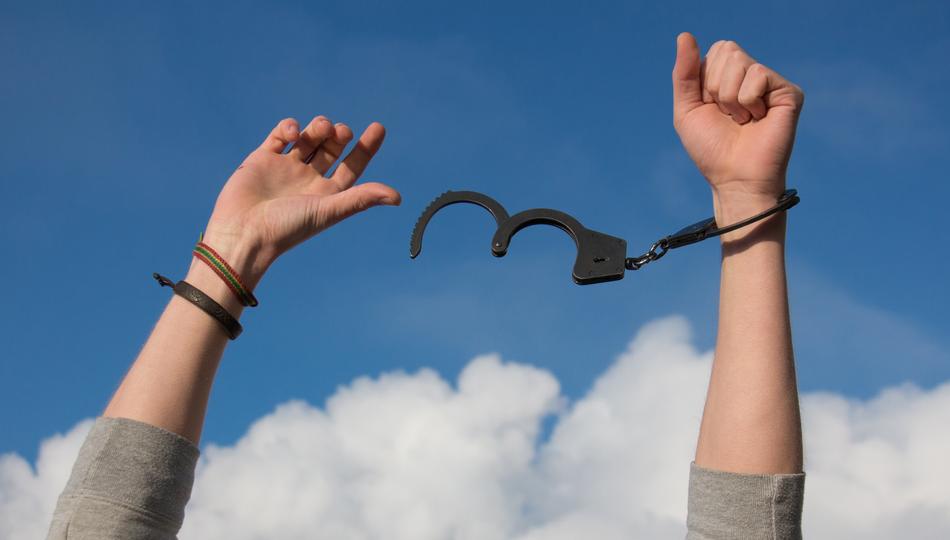
Drug Addiction Treatment and Recovery Act
Of all the laws going into effect this new year, few are more forward-looking than Oregon’s Drug Addiction Treatment and Recovery Act. Voted into being as Measure 110, it flips the script on drug addiction and opts for treatment rather than criminalization.
What is the Drug Addiction Treatment and Recovery Act?
Perhaps the best way to sum up the Drug Addiction Treatment and Recovery Act is via the people from Yes on Measure 110. After all, they’re the good folks who convinced Oregonians the initiative was necessary. Meaning it was they who succeeded in getting the bill passed.
The Yes folks first made clear that Oregon was in the middle of an addiction crisis. In fact, as many as 1 in 10 Oregonians suffers from Substance Use Disorder (SUD). That’s an astonishing number. Especially considering those Oregonians are more likely to be arrested than to receive treatment. Add the irreparable harm a criminal record does to a person and you wind up denying nearly 10% of the population an opportunity to live even a somewhat normal life.
Think about it: “a single mistake can prevent people from getting a job, a place to live, student loans, professional licenses, or sometimes even a credit card.”
Measure 110 flips the script on all that. Drug possession is now a violation rather than a crime, and a drug arrest leads to treatment instead of jail. Furthermore, people will also be connected to a bevy of other support services, including job counseling and housing assistance.
No foolin.’
This is no Get Out of Jail Free Card. The measure applies only to non-violent drug possession offenses. Nevertheless, it’s most certainly a much more “fair approach” to drug addiction.
How the Measure Works
We’ll let the Yes folks speak for themselves here:
Instead of arresting people for possession of small amounts of drugs, Measure 110 will greatly expand access to drug treatment and recovery services for anyone who wants and needs them, paid for by existing marijuana tax money. This includes:
1. Establishing Addiction Recovery Centers throughout the state to immediately assess the needs of people who use drugs, and link them to treatment, care and services. These centers can be housed in or operated by existing qualified providers.
2. Increasing the availability of services, including:
The Drug Addiction Treatment and Recovery Act Does Not Legalize Any Drugs
To be perfectly clear, while the Drug Addiction Treatment and Recovery Act does remove criminal penalties for low-level possession of all drugs, it does not legalize any drugs. Misdemeanor offenses are now fine-based violations. Fines can be waived upon addiction recovery evaluation, which will be made available in all parts of the state, 24 hours a day.
No change is made in the criminal code for delivery, manufacture, and other commercial drug offenses. These offenses will remain a crime. No change is made for other crimes that may be associated with drug use either, such as driving under the influence and theft.
The Yes Folks also made clear that an Oversight and Accountability Council made up of drug treatment and recovery experts will be established to ensure “expert supervision.” And that financial and performance audits from the Oregon Secretary of State, Division of Audits will ensure “real accountability.”
The Yes Folks also want to make clear that the initiative does not create any new taxes. None. Instead, it relies solely on existing marijuana tax revenue.
When the Drug Addiction Treatment and Recovery Act takes effect, they say, marijuana tax revenue is expected to total about $145 million a year. Any revenue exceeding $45 million a year will go to services for treatment, recovery, harm reduction and more. This represents a 395% increase in non-Medicaid state public expenditures for substance use disorder.
Last but definitely not least the Measure provides police more time to focus on what most matters. That is, serious crime. The Yes folks say Oregon police make at least one drug arrest every single hour of every single day. Now law enforcement will be able to direct their resources toward more serious crimes, as well as missing children, unsolved murders and a long backlog of cold cases.
Healing Properties Says…
Healing Properties wholeheartedly congratulates Oregon on voting to enact the Drug Addiction Treatment and Recovery Act. We’d especially like to congratulate — and applaud! — the Yes on Measure 110 gang. To think that it will no longer be a crime to possess small quantities of drugs, including heroin and methamphetamine, is a blessing. Especially considering that those caught in possession of such drugs will now be directed toward meaningful — and fully-funded — addiction treatment. We see a bright future in the Beaver State — a recovery-filled future! Now for the other 49 states to follow suit.
How about you? Are you having trouble with heroin or other opiates? What about meth? Cocaine? Well, help is out there, whether or not you’re in Oregon. In fact, it’s only a phone call away. So go ahead and call. Let us help you help yourself. Make your 2021 truly a lucky one.
Image courtesy the good folks at Pixy — with great gratitude!)